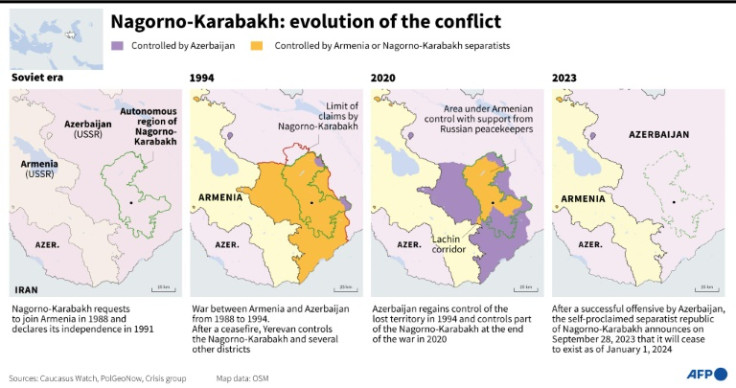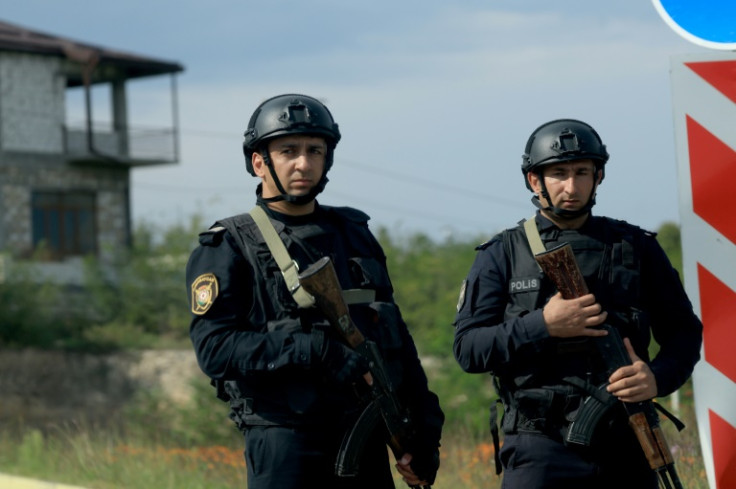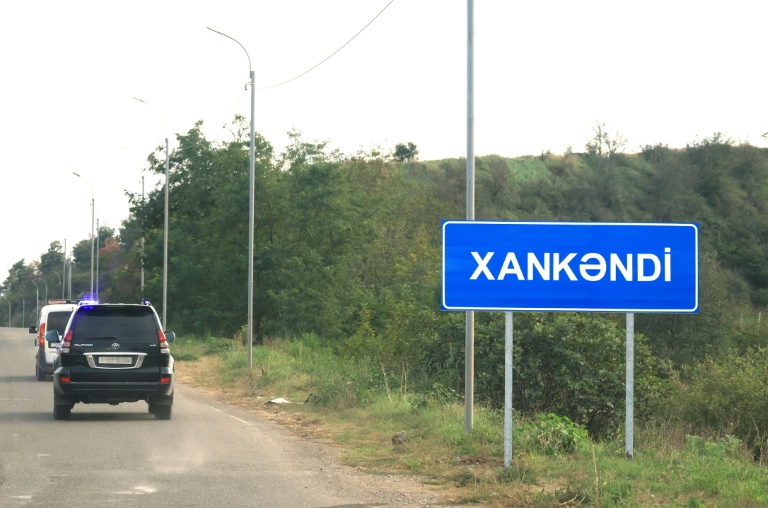Intact but abandoned, the capital of the breakaway territory of Nagorno-Karabakh lies eerily silent after the hasty departure of tens of thousands of residents.
Its name “Stepanakert” could be seen on a sign in Armenian letters in white on a red background, just beyond an Azerbaijani checkpoint on a road into the city.
Nearby, a bright-blue new road sign stands, reading “Khankendi” — the Azeri name for the former separatist stronghold at the heart of a 30-year conflict.
Nagorno-Karabakh surrendered to an Azerbaijani military offensive last month and since then almost the entire population of the territory has fled to Armenia.
Armenian separatists, who had controlled the region for three decades, agreed to disarm, dissolve their government and reintegrate with Baku following a one-day Azerbaijani offensive.
The presence of the winning side is still discreet and only a few Azerbaijani police officers could be seen patrolling the city.
But the Azerbaijani mobile phone network already works perfectly in some areas and red cars of the country’s operator Bakcell could be seen at work at antenna masts.
Buildings, restaurants, hotels and supermarkets lay empty and deserted in a city that once had 55,000 inhabitants.
Many have been smashed up with empty shelves — signs of looting or hasty departures.
There is no longer any Armenian flag visible and the only civilian seen was a haggard man, carrying a scythe accompanied by a pack of six German shepherd dogs.
The city looks like it has been hit by an invisible catastrophe, entirely intact and with no evidence of fighting or bombing.
The Soviet-style factories, the building sites of new houses for the middle class, the vegetable gardens and even the livestock have all been left abandoned.
Among the few signs of life are the numerous Russian peacekeepers — a contingent sent in 2020 as part of a peace deal to end a six-week war between Armenia and Azerbaijan over Karabakh.
They could be seen in tanks, cars, on foot and even on bikes in the city suburbs.
Nobody on the Azerbaijani side could say exactly how many residents remain in the city.
But the separatist government said in a statement on Monday that some officials will stay until search operations for people killed and missing have been completed.
Danger is never far away in the city.
Some distance from the city, Azerbaijani officials brought a group of journalists to a field next to its former airport, currently a Russian peacekeeper base.
The officials said there were 100 hectares of cannabis there, which they said had been used to fund the separatist government.
Asked why the cannabis was growing next to a Russian base, interior ministry official Aykhan Mustafayev said: “An investigation is underway. We are not making any comment”.
As the officials were showing the cannabis field, a Russian military helicopter flew in and settled beyond the barbed wire on the landing strip of the former airport.
Admiring the surrounding scenery, Mustafayev said: “It is emotional. After years of sorrow, years of disbelief finally this is over.
“As the ministry of internal affairs, we can now establish control over the whole territory,” he said.
AFP

AFP

AFP







